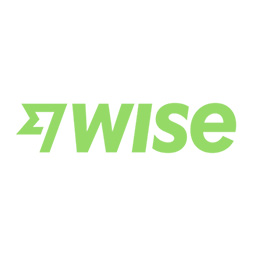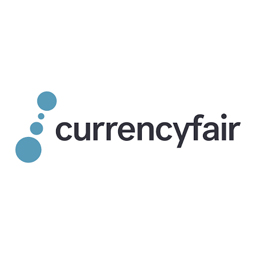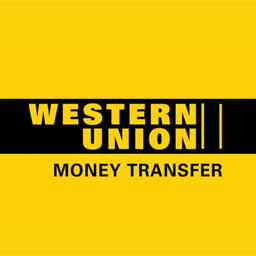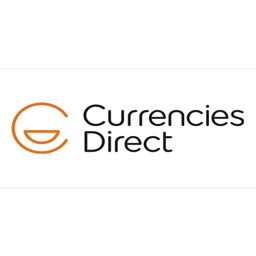Making international money transfers from The European Union has never been simpler, and the process is now simpler than it has ever been before for European residents. There are many well established European financially regulated companies that specialise in sending money abroad from The European Union. European people send money abroad for a wide variety of reasons, including a variety of personal and commercial reasons, as well as financial ones such as employment or family reasons. Some of these reasons are personal, while others are financial. This includes sending mone abroad from The European Union to pay for overseas investments, sending money to family overseas from The European Union and commercial business payments for businesses in The European Union.
When you transfer money abroad from The European Union, you will be required to pay a charge regardless of the size of the amount of money that you are sending or the frequency with which you move a lesser amount of money abroad from The European Union. When you throw in the impact of currency conversion for EUR and other currencies, you can see how quickly the expenses may stack up.
 Visit XE Money Transfer
Visit XE Money Transfer
Used By: 280000000
Currencies Available: 76
Transfer Fees: none
Payment Methods: Bank transfer, credit card, debit card
iOS App : yes, Android App : yes
LiveChat:
Min Transfer: US$1.00
Max Transfer: US$500,000.00 (or equivalent)
Year Founded: 1993
 Visit Wise Multi-Currency Account
Visit Wise Multi-Currency Account
Used By: 11000000
Currencies Available: 54
Transfer Fees: 0.5%-1%
Payment Methods: Bank transfer, debit card, credit card, SOFORT transfer
iOS App : yes, Android App : yes
LiveChat:
Min Transfer: 1 USD
Max Transfer: 1000000 USD/transaction/day (personal), 3000000 USD/transaction/day (business)
Year Founded: 2011
 Visit Remitly
Visit Remitly
Used By: 3000000
Currencies Available: 63
Transfer Fees: 0-3.99$
Payment Methods: Bank transfer, credit/debit card
iOS App : yes, Android App : yes
LiveChat:
Min Transfer: US$1.00
Max Transfer: US$20,000.00
Year Founded: 2011
 Visit Wise Business
Visit Wise Business
Used By: 11000000
Currencies Available: 55
Transfer Fees: 0.5%-1%
Payment Methods: Bank transfer, debit card, credit card, SOFORT transfer
iOS App : yes, Android App : yes
LiveChat:
Min Transfer: 1 USD
Max Transfer: 1000000 USD/transaction/day (personal), 3000000 USD/transaction/day (business)
Year Founded: 2011
 Visit Wise
Visit Wise
Used By: 11000000
Currencies Available: 54
Transfer Fees: 0.5%-1%
Payment Methods: Bank transfer, debit card, credit card, SOFORT transfer
iOS App : yes, Android App : yes
LiveChat:
Min Transfer: US$1.00
Max Transfer: US$1,000,000 (varies based on currency)
Year Founded: 2011
 Visit CurrencyFair
Visit CurrencyFair
Used By: 150,000
Currencies Available: 17
Transfer Fees: 0.45%
Payment Methods: Bank transfer, debit card
iOS App : yes, Android App : yes
LiveChat: yes
Min Transfer: £5.00 (or equivalent)
Max Transfer: £10,000,000.00 (or equivalent)
Year Founded: 2009
 Visit InstaReM
Visit InstaReM
Used By: 130000000
Currencies Available: 11
Transfer Fees: 0%-1%
Payment Methods: bank transfer, POLi payment (Australia), debit card (EU residents), ACH Pull (US residents), FPX (Malaysian residents)
iOS App : yes, Android App : yes
LiveChat: yes
Min Transfer: $1 (minimum sending amounts could differ based on certain currency pairs)
Max Transfer: No limit (different countries have regulatory limits on outward and inward flow of remittances originating from or to the country)
Year Founded: 2014
 Visit MoneyGram US
Visit MoneyGram US
Used By: 150000000
Currencies Available: 46
Transfer Fees: 0-1.99$
Payment Methods: pay by card or directly from your bank account
iOS App : yes, Android App : yes
LiveChat:
Min Transfer: none
Max Transfer: 3000 USD
Year Founded: 1940
 Visit Xoom
Visit Xoom
Used By: 250000000
Currencies Available: 4
Transfer Fees: 0$-40$
Payment Methods: Bank transfer, debit/credit card, PayPal balance
iOS App : yes, Android App : yes
LiveChat: yes
Min Transfer: US$10.00
Max Transfer: 2999 USD/day, 6000 USD/month, 9999 USD/3 months
Year Founded: 2001
 Visit Skrill
Visit Skrill
Used By: 120,000
Currencies Available: 33
Transfer Fees: none
Payment Methods: Cash, bank transfer, debit card, credit card, e-wallet, cryptocurrency (depending on country)
iOS App : yes, Android App : yes
LiveChat: yes
Min Transfer: US$1.00 (varies based on certain currencies)
Max Transfer: US$2,500.00 / day (weekly and monthly limites also apply)
Year Founded: 2001
 Visit Scotiabank
Visit Scotiabank
Used By: 25,000,000
Currencies Available: 23
Transfer Fees: none
Payment Methods: Bank transfer, debit card, credit card, apple pay, google pay, Scotiabank Saddletone gift cards
iOS App : yes, Android App : yes
LiveChat: yes
Min Transfer: none
Max Transfer: 10000 USD
Year Founded: 1832
 Visit OFX
Visit OFX
Used By: 1000000
Currencies Available: 54
Transfer Fees: 15 AUD below 10k AUD
Payment Methods: ETF, BPAY (Australia), Direct debits
iOS App : yes, Android App : yes
LiveChat: yes
Min Transfer: 1000 USD
Max Transfer: none
Year Founded: 1998
 Visit Credit Suisse
Visit Credit Suisse
Used By: 1000000
Currencies Available: 1
Transfer Fees: none
Payment Methods: eBill, QR-bill, standing orders, payment orders, online & mobile banking, direct debit, multi-payment orders, bank transfer, debit card, credit card
iOS App : yes, Android App : yes
LiveChat: yes
Min Transfer: none
Max Transfer: none
Year Founded: 1856
 Visit Western Union
Visit Western Union
Used By: 15000000
Currencies Available: 38
Transfer Fees: up to 3%
Payment Methods: Cash, bank transfer, debit card, credit card (varies from country)
iOS App : yes, Android App : yes
LiveChat:
Min Transfer: $1.00
Max Transfer: $10,000.00 (varies)
Year Founded: 1851
 Visit TransferGo
Visit TransferGo
Used By: 2,500,000
Currencies Available: 39
Transfer Fees: 0.5%-1.5%
Payment Methods: Bank transfer, debit card, credit card
iOS App : yes, Android App : yes
LiveChat: yes
Min Transfer: 1.5 GBP
Max Transfer: 1000000 GBP
Year Founded: 2012
 Visit Moneycorp
Visit Moneycorp
Used By: 15000000
Currencies Available: 161
Transfer Fees: none
Payment Methods: debit card via our online platform or a wire transfer, cash
iOS App : yes, Android App : yes
LiveChat:
Min Transfer: 50 USD/GBP/EUR
Max Transfer: none
Year Founded: 1962
 Visit Currencies Direct
Visit Currencies Direct
Used By: 325,000
Currencies Available: 22
Transfer Fees: none
Payment Methods: Bank transfer, debit card
iOS App : yes, Android App : yes
LiveChat: yes
Min Transfer: none
Max Transfer: 25000 GBP
Year Founded: 1995

The speed at which you receive your money depends on the method used The European Union to make the transfer abroad. Typically, it takes 3-5 business days in The European Union to send a domestic or international wire transfer. But priority services are available that allow the sending of money in The European Union abroad within a few hours to 1 day. Depending on the method used in The European Union, recipients can expect to receive your sent money in as little as 1 hour. If you are trying to transfer money from The European Union to a friend abroad, the fastest way is to send the funds early in the day. This will ensure that it gets processed quickly and to your recipient from The European Union quickly.
The amount of time a money transfer takes in The European Union depends on its destination. For a domestic transfer in The European Union, a wire transfer may take 24 hours. For an international transfer from The European Union, it can take up to five days. It is a good idea to call the receiving bank from the The European Union in advance to make sure that the recipient's bank does not have a cut-off date. This way, you will be able to avoid missing the transfer windows some overseas financial institutions have that The European Union may not have.
Domestic wire transfers in The European Union typically take 24 hours. A domestic transfer in The European Union to a foreign account can take up to three to ten days. Usually, the funds arrive within a few hours, but international transactions can take as long as five days. A slow wire transaction in The European Union may even take three weeks before reaching the recipient's account in The European Union. However, you should be aware of the risks of such delays. In addition, a delay in the transfer can lead to the cancellation of the European transaction abroad.
If you are sending a large amount of money from The European Union, you may need to make sure the currency you are sending is the same as the currency your recipient is receiving abroad from The European Union. This can affect your bottom line, so make sure you check the costs associated with your money transfer abroad from The European Union and online transaction statements. If you are unsure, you can call or message a money transfer company online in The European Union to find out how to send money to a foreign country abroad. When sending money internationally from The European Union, it is best to choose a company that offers low fees and has a reputation for reliable service for European clients.
Many people in The European Union choose bank transfers as a cheap and convenient option. While bank-to-bank transfers in The European Union are safe, they often do not offer the same quality of service and online tools as a dedicated money transfer service in The European Union when sending money abroad. If you need to transfer a large amount of money from The European Union abroad, however, it might be best to choose a company that specializes in international money transfers abroad specifically from The European Union.
A good way to send money to an international recipient in The European Union is to use a bank account. The money will be sent to the recipient's bank account in The European Union by electronic means, using the internationally banking network which The European Union is part of. Transfering money from The European Union abroad usually takes three to ten days to process and requires you to enter the recipient abroads verified bank account information. There are many options for sending money internationally from The European Union online, and you can choose the best one for your specific needs. In addition, the time of day you send money from The European Union abroad is important because the amount you send abroad will be affected by the European EUR currency exchange rate.
Wire transfers are an easy and safe way to send money from . You can send the money to a person's account almost anywhere in the world from The European Union using a money wire. To send money from The European Union using a wire transfer, both parties must have a bank account that supports SWIFT. European financial regulations require banks to confirm the identities of the parties and request a verified physical address to ensure that the abroad recipient is who they claim to be when recieving money from The European Union. In order to make sure that your European payment is processed, you should be aware of the KYC ID verification requirements of money transfers from The European Union.
With a European bank transfer, your money is transferred from one bank in The European Union account to another. Most bank transfers in The European Union are safe and fast, and they are generally much safer than sending cash abroad from The European Union. You must know The European Union account number of the payee, date of payment, and six-digit sort code to complete the transaction in The European Union. Even though it is a safe method, a money transfer abroad from The European Union is still a risky process if you do not use a well financially regulated money service in The European Union.
The best way to protect your money transfer in The European Union from hackers and scammers especially when sending money abroad from The European Union is to choose a secure money payment service in The European Union. Some electronic money transfer services in The European Union require you to enter a security question and answer, and others require European money senders to type in your password and security answer. It is a good idea to use a secure password when you send money to avoid identity theft. The European company should also ask you to provide a unique code to verify your European identity. To keep your account credentials safe, you should not include your European passwords, security codes or other personal information in the message.
Using a secure payment app in The European Union when sending money abroad such as XE Money Transfer can help protect your money. You should always ensure the security of your European mobile device by enabling multi-factor authentication. This is a great way to secure your online banking in The European Union. Most online payments in The European Union have to be bank-grade security encrypted due to their European financial regulation, so make sure your smartphone or tablet is protected against hacker attacks when sending money abroad from The European Union. When choosing a payment service in The European Union, make sure it is safe to use a European credit or debit card.
While most banks in The European Union use various security measures to protect your financial information, you can take steps to protect your money from hackers. Using a good cybersecurity solution is an excellent way to protect yourself from malware infections and data theft in The European Union. It will also help protect your money transfer. You can install the software on all of your devices with the security software. These tools will allow you to keep your personal information secure. Once you have installed the software, you will be able to safely pay with your money in The European Union
There are many different Money Transfer Methods in The European Union. These methods involve sending money through a bank account. While the most common way to send money in The European Union is through a bank, you can also transfer funds through various other methods. The best way to send money in The European Union internationally is to use a credit or debit card.
Wire transfer is a great option for large amounts of money in The European Union. It is easy to send large sums of money in a single transaction, and it is especially convenient for sending money to a business. Using wire transfer is also a safe way to send money in The European Union. This method is protected byEuropean banking regulations and security protocols, so you do not have to worry about unscrupulous hackers trying to access your account.
In European another popular money transfer method is XE Money Transfer. If you are not familiar with this method, it is a great way to transfer money quickly and easily in The European Union. However, European money senders need to understand the terms and fees before using this method to send money abroad. You will need to provide identification and proof of identity for yourself in The European Union and address of the person you are sending the money to abroad, as well as the amount you are sending in EUR or other currency. In addition, you will need to make sure that the person you are sending money from The European Union abroad to is actually a verified resident of the country you are sending your European money too.
Bank Transfer is a convenient way to send money from one bank account to another from The European Union to abroad. Compared to using cash, bank transfers are usually free and fast in The European Union. However, there are many ways that can be excessively expensive and slow in The European Union to send money abroad.
Bank Transfer is a interbank electronic funds transfer in The European Union. This method of international money transfer allows you to pay someone from The European Union abroad without cashing a cheque or waiting for the European and international post services. Once the money is transferred from The European Union to your recipient abroad, it is available for use immediately. You may be required to provide "further delivery" instructions from The European Union in order to deliver the money to the recipient abroad. This might include adding an account number or adding a name to the European international transaction. It is important to note that some banks in The European Union have different fees for different types of transfers overseas.
A Bank Transfer in The European Union is an electronic method of sending money to another person or entity. Unlike a cheque, a bank transfer is a secured and confidential transaction. To use it, you will need to provide the abroad beneficiary's bank account details and a European unique reference number. Once you have all the necessary information, you will need to complete the transaction using your preferred money transfer method available to you in The European Union that supports your recipient country abroad. You can do this in The European Union by phone, through the post, or by signing up for a European online money service that can move money abroad quickly, safely and cheaply from The European Union.
A debit card has the same convenience as a credit card, but it pulls funds directly from your European checking account. When you make a purchase in The European Union using a debit card, the merchant places a hold on the amount of money that you have on deposit. The merchant then submits the transaction to the European bank, which transfers the funds to the merchant's account. However, if you do not receive the funds within a few days of making a purchase, the hold will disappear and the transaction will not go through.
When using a European debit card, you are responsible for protecting the money you have on your European account. You can avoid paying high interest rates by using a Debit Card for all of your purchases. The only drawback of a Debit Card is that it can be difficult to get reimbursed in some cases. Nonetheless, if you follow these simple guidelines, you will be able to make purchases safely. You can even use a European Debit Cards anywhere Visa or MasterCard debit cards are accepted.
A European Credit Card is a type of payment card that allows you to make purchases in The European Union with your credit. You can borrow a certain amount of money on your card, which can range from a few hundred dollars to several thousand dollars. You can use this money to make purchases on the internet or in retail stores in The European Union. When you make a purchase, the transaction is recorded as pending on your European account. Within a few days, your purchase will post, increasing your total balance. You will receive a monthly bill that includes all of your purchases. It is your responsibility to pay the minimum amount due on your bill.
A European Credit Card is used to make purchases. When you use your card to make purchases, the European credit card company logs each purchase and adds it to your statement. You will then receive a bill at the end of the billing cycle. If you do not pay your balance, you will be assessed an interest charge. The interest compounded over time can make your European credit balance grow exponentially. You may wonder why there is no such limit on how much money you can spend on a The European Union Credit Cards each month sending money abroad from The European Union.
A Payment Initiation Service Provider (PISP) is a financial institution in The European Union that allows users to initiate payments through its website. This service is different from the Account Information Service Provider in that it allows users in The European Union to perform actions on their own. However, it is important to note that both of these services are important to European consumers. A PISP can assist both consumers and corporates in The European Union. Essentially, it enables European users to do move large amounts of money abroad without having to be a member of a financial institution in The European Union.
The European PISP is a vital part of the electronic payment process in The European Union. It facilitates transactions between the payer and the institution in The European Union. It is crucial to note that the PISP does not hold the funds of the European payer, and the transaction will not be canceled if the abroad recipient does not approve it. In addition, the PISP must ensure that European customer information is secure and only given to the abroad payee with explicit consent. It should also ensure that all communications are protected and encrypted when sending money abroad from The European Union.
The The European Union PISP is a secure and convenient method of accepting payments in The European Union. It can be used to replace traditional card payments or automate outbound payments in and out of The European Union. In addition to being secure, PISPs provide many benefits for businesses and consumers in The European Union. They allow European and abroad merchants to receive a high-quality payment. This can reduce fraud in The European Union and increase the likelihood of repeat purchases for European businesses sending money abroad. The PISP has a broad range of advantages over card-based payment methods for overseas money senders in The European Union.
The European Union SWIFT is a standardised electronic financial messaging system in The European Union. The standardised messages and reference data it uses enable automation and risk mitigation for financial institutions and corporate clients in and out of The European Union. A SWIFT payment involves sending and receiving a payment from The European Union using a secure network and sending it abroad. It is a great way to transfer money between different banks in The European Union and overseas and it creates a global level of connectivity for European clients. Not only can European clients send and receive payments abroad, you can also make international money transfers from one European bank to another. The SWIFT network is a safe place for secure financial messaging. When sending SWIFT payments from The European Union, it is important to remember that your EUR money is being sent through a third-party intermediary. These institutions usually charge European clients a fee for the service, and these fees can really add up when sending money abroad from The European Union. In addition, you need to consider the cost of currency exchange conversion fees when sending different fiat currencies from The European Union.
Using PayPal in The European Union is a convenient way to send and receive payments in The European Union with little hassle. It is simple to use and can be used from your European bank account, The European Union credit card or PayPal balance. If the recipient does not have a PayPal account, they can sign up for one if their country supports PayPal. The amount you send to the recipient from The European Union is automatically added to their PayPal account balance. Paypal can be very costly for large EUR money transfers abroad, due to currency conversion fees. Occasionally, these European PayPal funds may go unclaimed. To avoid the high fees, you should always opt to pay money from The European Union with a different more economical method where possible. The recipient of a PayPal payment from The European Union does not have to have a PayPal account. All they need to do is send a detailed invoice and the sender in The European Union can send money to their email. PayPal will then send an email to the abroad recipient of The European Union transfer. The abroad recipient will recieve an email from PayPal and will be able to cliam the funds send from The European Union. In order to complete the transaction, the recipient must click the 'claim funds' button in the email. Make sure to check your spam or trash folder before sending the payment. If the payment from The European Union does not show up within minutes, try contacting the recipient abroad and asking them to wait a few hours.
With Apple Pay in The European Union, you can make payments at online retailers and in app stores from The European Union using the same secure technology as traditional European credit card transactions. To use the service, simply open the Apple pay app from your European device, select the card you would like to use, and Apple will give you an option to send payments to other Apple devices in or outside The European Union.
.Apple pay uses tokenization which is an advanced payment security method in The European Union that ensures a safe transaction. By replacing sensitive The European Union credit card account numbers with random numbers, Apple Pay prevents identity theft and fraud in The European Union. Tokenization prevents European credit card account details from being stolen and protects your identity from hackers. Tokenization means that merchants and payment networks do not need to keep your European bank account details on hand. Tokenization also makes Apple's security system a more secure choice for consumers in The European Union. Apple Pay is not designed to regularly send large amounts of money abroad from The European Union, but with smaller sums Apple Pay can be a quick alternive to more advances online money transfer services in The European Union.
There are many reasons why you might want to send money in The European Union online, but ensuring that you are doing it safely and securely is key. You may have promised to support family members back home by sending them money from The European Union, or you might be working in a better environment but want to keep in touch with friends. Whatever the reason, the right way to safely send money online from The European Union is essential for your peace of mind. You can find numerous options for safe money transfers from The European Union to abroad online.
There are a number of different money transfer platforms in The European Union available. But if you are using a moble app, it is essential to make sure it is secure. Whether it is European online banking platform or a European mobile wallet, a mobile app is a smart way to send money from The European Union, and you can easily access it wherever you are. But be sure to choose a safe service that has a good track record of sending money from The European Union to somewhere abroad, or you will end up paying a high fee.
When it comes to money transfers in The European Union, there are two primary ways to send money online. You can use a European banking app to send money to someone across the sea abroad, or you can use a European wire transfer that supports your overseas country. There are many ways to send money online in The European Union, but the risk is real. The most common method is to use a The European Union bank account, but this can be very costly and slow in The European Union. You can safely send money to a friend abroad by European bank transfer, or a bank account. In addition to using a European bank account, you should consider using a mobile wallet that supports multiple payment methods in The European Union. The best way to send money from The European Union is to transfer funds from a mobile phone or a computer. You can also make deposits to a foreign bank overseas from a The European Union bank of your choice.
Official government financially regulated banks in The European Union have to adhere to strict rules and codes of conduct when sending money from The European Union abroad. If there are and issues with your European money transfer overseas. Leading financially regulated European may be able to offer European clients some recourse if there are any issues with sending money overseas.
Any money service you use to send money abroad from The European Union, must be financially regulated in The European Union. The European financial regulatory system includes European laws, requirements, limits, and guidelines that affect the integrity and health of the The European Union financial industry. These European regulatory government endorsed agencies work to ensure the safety of the The European Union financial system and the welfare of their European clients. They are a part of European government and the non-governmental sector alike in The European Union, but each has its own role and responsibilities.
The purpose of these agencies is to regulate the The European Union financial industry and prevent a crisis for European residents. The regulators monitor the activities of The European Union companies and the financial markets. The The European Union government also regulates firms by sector. Some of these bodies oversee banks, insurers, and insurance companies.
The internet makes it easy to transfer information quickly in The European Union, but it is important to use secure transfer methods whenever possible. With hackers lurking around every corner, it is important to take precautions to protect yourself in The European Union from a man in the middle attack. These attacks allow people monitoring your data transmissions to listen in on your conversations. When you choose secure money transfer methods when sending money abroad from The European Union, your data is protected from eavesdropping and privacy violations. Encryption, two factor authentication and security passwords will ensure your files are secure from both the internet and other users, when sending money from The European Union overseas. The key is to choose the method that suits your needs best and keep your data safe at all times.
If you are sending money to The European Union from abroad, you need to make sure that the company you are using has strong data protection policies. For example, you should never send a large sum of money abroad unless the recipient confirms their identity with a regulated financial institution in The European Union and abroad. Furthermore, you should never provide information about yourself in The European Union that someone could use to access your European bank account. This type of information is highly valuable to fraudsters in and outside The European Union.
When sending money to another User, you must first agree to the The European Union money services terms and conditions regarding sending money abroad. Some overseas countries that you send money to from The European Union may be grey or blacklisted which means your European money transfer may be cancelled and you still charged processing fees in The European Union. If your European money transfer abroad is a future one, you should know that the abroad recipient cannot change the date or cancel it. In addition, you should always check the security level of the European and international payment system to avoid losing your money. Any service you use in The European Union must have a high level of security. You should make sure that data protection is in place for your The European Union bank account information. A good example is an e-transfer fraud that occurs with money transfers from The European Union abroad. This type of scam involves someone pretending to be a friend or relative of the European sendee, but then intercepts the money themselves, which means the money sent from The European Union will never reach the intended overseas recipient.
If you want to send money to another person but you do not have the The European Union bank account to do so, you may want to consider using a online money transfer service available for sending money to many locations abroad from The European Union. This is an electronic way to transfer funds, and most major The European Union online money transfer companies offer this service. All the best money services will have a stand-alone app for iOS and Android devices in The European Union designed to send money electronically abroad and overseas quickly. The benefit of this method is that you can send money abroad without ever having to leave your home in The European Union, and these money sending apps are free to download.
Bank wires can also be a good safe choice when sending money from The European Union. These are used to transfer funds from one The European Union bank account to another in The European Union or overseas. A bank wire involves a series of networks and a third-party to send money from one The European Union bank to another overseas. These are often used by private corporations in The European Union sending larger sums abroad.
International money transfers in The European Union are fast and convenient. Although they require a small fee, money orders are more expensive than European bank transfers and may take a longer time to arrive (3-10 days). However, if you are sending a smaller amount from The European Union, you may want to consider using a money transfer service instead of a European bank. It offers European clients traceability in official banking networks. If you need to send money abroad with competitive currency conversion fees, consider using a service like XE Money Transfer, which offers money transfer services worldwide from The European Union.
Many people want the convenience of an international or local cash pick-up service when recieving money from The European Union. This service allows you to send money from The European Union to someone else abroad and overseas without the need for a money transfer service account. This type of transfer is convenient for those who do not want to maintain multiple The European Union bank accounts. It is also a quick and convenient way to send money from The European Union, but can be prone to frauds and scams if you do not know the person you are sending money abroad to from The European Union.
When you send money to a foreign country in The European Union, you can choose the option of international Or local cash pickup. This method of transfer offers a faster and more convenient way to get the money from The European Union to the recipient overseas. It eliminates the hassle of having to deposit the money into a European bank account and withdrawing it from another institution. It also avoids the extra expense of currency conversion if sending EUR abroad. International or local cash pick-up services from The European Union can provide the recipient with a large amount of cash overseas in less than a day. They can be very convenient, since the recipient does not need a The European Union bank account to receive the money. However, cash pick-up services may not be the best choice if European clients are concerned about the costs involved. You might be surprised to find out that these services have higher transfer fees than bank-to-bank transfers in The European Union.
A Bank Transfer is a convenient and easy way to send and receive money in The European Union and overseas. It requires a six-digit sort code and account number or IBAN account identifier, the name of the person being sent money too overseas, and the amount to be transferred. Most European bank transfers can be completed in a matter of hours from The European Union, though they can take a few days in some cases with larger amounts. A bank transfer can be used to transfer funds across borders overseas from The European Union, but it is not always as convenient as some modern online wallet money transfer services available in The European Union.
A Bank Transfer in The European Union is a safe, easy way to send money overseas. The recipient's bank will receive the money within a few minutes of the transaction. It is a good option for small, one-off payments in The European Union. The money will be transferred to your chosen overseas bank's account, and your recipient's bank abroad will need the code to verify the transaction. In the case of a bank transfer from The European Union, you will need to confirm the IBAN or BIC code and the overseas recipients BIC code or you risk losing the transfered money. A message will be sent via secure systems from the sending bank in The European Union to the receiving one abroad. The message will contain instructions for the settlement of the European money.
Buying mobile top up credits is now easy, convenient and affordable in The European Union. You can refill your credit on your phone with just a few clicks. You can send the Mobile Top Up to almost any country from The European Union. You can use the service to recharge your credit anytime and anywhere in The European Union. The mobile credit is available in most countries overseas to The European Union. You can buy a top up credit online in The European Union and it be received instantly abroad. To top up your mobile phone with money in The European Union, you can simply go online.
You can send credits abroad from The European Union by using your mobile phone's SIM card. To send credits to a foreign mobile phone abroad, you can use your local European SIM card. You can also use an online money transfer app in The European Union for this purpose. You can send credits to any country without any hassle from your phone in The European Union. Just select your destination country and follow the instructions. You can also add your own credit to prepaid mobile phones you have in The European Union. It is that easy. With Mobile Top Up services online in The European Union, you can easily send credits overseas. To send mobile top up credits from The European Union to overseas contacts, you must have an internet connection. Once you have your contacts mobile phone number, the process is easy from The European Union.
Despite the fact that international The European Union money transfers are considered safe, the risk of losing funds is still a serious concern for European people. While money is never lost, it can disappear at any time during the process, and it may never reach the person who was intended to receive it overseas from The European Union. Because of this, it is important to be aware of The European Union local laws and follow them when using an international money transfer company. It can be a wise choice to choose a European reputable provider.
While money transfer scams in The European Union are more advanced than ever, if you are worried about the safety of your money, you can use a European bank or a money transfer provider in The European Union. These European providers offer bank-level encryption and security questions and fraud prevention measures. They also automatically log out after a certain amount of time in The European Union. You should also ensure that your recipient's ID is required to pick up the cash abroad.
Any amount usually above 10,000 EUR, has to be declared to tax authorities in The European Union.
There are limits to how much you can send abroad from The European Union. However, these are not fixed and can vary from country to country and provider to provider. Sending limits can vary between 5,000 EUR to 50,000 EUR. Higher sums can be sent using specialists sevices in The European Union. Some European banks allow you to increase your sending limits by providing more documentation, so make sure to check the documentation requirements before you start sending large amounts abroad from The European Union. When transferring money abroad, there are many different methods.
The most common method is to use your The European Union bank. You will be more familiar with the bank, and they will likely have the best rates. You can also use the The European Union bank's online banking app to send money to an overseas address. The downside of using a European bank to send money overseas is the high cost of wire transfers. While European banks are convenient, they typically charge high fees. Specialist transfer providers in The European Union have lower fees and can save you a significant amount.
Another way to send money abroad from The European Union is through an international money transfer. Some European banks offer direct transfers. This option can be done over the phone, over the internet, or in person. There may be a fee involved, so it is important to do your research before sending any money from The European Union. The best way to send money abroad is by using a European bank that supports your preferred currency. The best option is one that offers the best EUR exchange rates. If you are trying to send money abroad, you can also try cash-to-cash transfers in The European Union. European prepaid debit cards can be used to buy things in foreign countries abroad.
When your money is held at the European bank, it will not be available until a certain date while a clearing process is in action. The bank recieving your European money will usually hold the money for two days before making it available to the person you sent it too overseas, but they can make the funds available faster if you pay them a fee, when you initiate the transaction from The European Union. If you are unsure of the time it will take, you should ask your European money service when it will be available for your overseas recipient. Often, a deposit receipt will show that the money was deposited from The European Union, but it does not mean it is ready to spend overseas. In order to make sure you keep a record of your correspondence with your European money service. If you notice a mistake when sending money from The European Union, write down the date it happened and what bank it came from. Then contact your European bank and they will begin investigating your situation.
When sending a money transfer to another country from The European Union, the recipient may have specific instructions. While the amount of money you send may be the same, the timing can vary based on The European Union time zones, The European Union currency exchange rates, and holiday periods. A good way to determine the timing of your European money transfer abroad is to check the recipient's bank's website and make sure all information is correct. Then, you can proceed to sending your money from your European account.
Depending on the payment method you choose in The European Union, it may take up to five days to receive the money. The European Union Bank-to-bank transfers may take as long as a week to ten days to reach their destination overseas. When sending money internationally from The European Union, you should note that your recipients time zone and currency exchange rates compared to your European and EUR exchange rate should be considered. Some countries are slow to pay, so make sure to consider this before you initiate your transfer from The European Union.
Most The European Union banks charge a monthly fee, and they can range anywhere from 4 EUR to 150 EUR. Fortunately, these fees are usually easy to avoid if you have multiple accounts at the same European bank. In addition to opening multiple accounts at the same bank in The European Union, you should maintain a minimum balance. In some cases, direct depositing money to a foreign bank account from The European Union can also waive these monthly fees. When transferring money internationally from The European Union, it is important to understand all the fees before making a decision.
Before choosing a specific method to transfer money, make sure you know The European Union exchange rate and fees involved. Different European banks charge different amounts for incoming and outgoing transfers. Before sending money abroad, it is important to account for European exchange rates and know exactly how much you are sending overseas. Some European banks charge a higher markup when converting local currency to a foreign currency, and this can add up quickly. You should make sure you do not send more money than you have and ask your bank in The European Union for their batch transfer deadline. Usually, this deadline is 3 or 4 p.m. in The European Union, so be aware of this and choose a money transfer service with care.
Before you send money from The European Union, you need to know what documents you need. A money transfer requires your recipient's name and bank account information abroad, as well as a few other details. You must provide the correct information when sending money in The European Union. A international money transfer from The European Union requires the following information: the overseas recipient's full name, bank account number, ABA or routing number, amount, and source of funding like your European bank account or a third party. When you are sending money from one country to another in The European Union, you should check the overseas recipients photo ID. In some countries, you will need to provide a European government-issued ID. Other services may require a secondary ID, as well. And, you might have to provide the receiver's full verified address.
We list reviews for the best money transfer services for sending money to European you can check out some of the best European money services below.
If you would like to see XE Money Transfer compared against some of the best XE Money Transfer alternative European money tranfer services available right now you can do so by clicking on the links below.